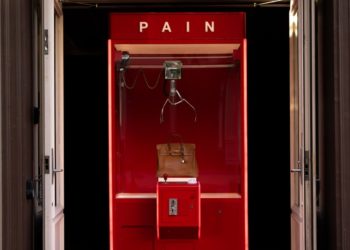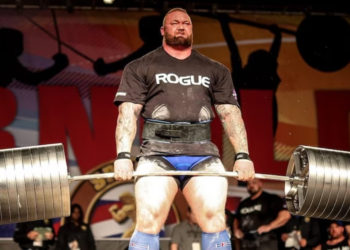Doha, Qatar – Six coffins – five of them draped in Palestinian flags, one in a Qatari flag – were laid before the hundreds gathered for funeral prayers at Doha’s Imam Muhammad ibn Abd al-Wahhab Mosque.
Sitting in the front row of the congregation on Thursday was Qatar’s Emir Sheikh Tamim bin Hamad Al Thani. He was there to honour those killed in an Israeli attack this week that has shaken Qatar.
Among those killed was Lance-Corporal Badr Saad Mohammed al-Humaidi al-Dosari, a 22-year-old member of the Internal Security Forces. In the crowd after the prayers, the emir comforted a young boy with tears rolling down his cheeks.
The sombre feeling at the funeral followed the shock of Tuesday’s attack, which targeted Hamas leaders as they were discussing a Gaza ceasefire proposal presented by the United States. The leaders survived the attack.
Disbelief
The attack took place on Tuesday afternoon in the city’s West Bay Lagoon area. Several blasts rang out across Doha, sending up a thick plume of smoke and uniting its residents in equal parts shock and horror. Though the nature of the incident was quickly apparent, Doha’s reputation for safety cast a shadow of doubt over whether it really could have been attacked.
Since gaining independence in 1971, the country has faced no conflicts that have escalated into direct military action on its territory. When Iran carried out its strike earlier this year, Qatar was more of a circumstantial participant – its role shaped largely by the presence of a major US military base.
Mohammed Asim, 40, who moved to Doha from Bangladesh with his wife and two children and works in the wholesale food trade, lives about a kilometre from the building that was hit and said he had never believed such a thing could happen in the city.
“I thought a house was being demolished, as the sounds of the explosions, which came one after the other, reminded me of that,” he told Al Jazeera. “It wasn’t until I saw the news that I realised.”
‘Lord, make this land secure’
About 45 minutes after the strike, I arrived with my colleague, photojournalist Showkat Shafi, in the Diplomatic Area in West Bay near Doha’s coast, just as details were beginning to reach newsrooms worldwide. We parked the car a few blocks down from the site and walked about 500 metres until we arrived near the site. Before us stood a large crimson-walled compound, its facade torn open, ashen debris spilling through the wide gate, with wisps of smoke still curling from the courtyard where another strike had hit.
Two drones, one fibre optic and the other remote, hovered above the compound for hours, providing light after dusk, as emergency services dug through the rubble.
All entrances to the streets near the compound were cordoned off. Beside us were members of various branches of Qatar’s security services, civil defence teams and several ambulances on standby. As the night drew on, the police presence thinned, with families in nearby houses occasionally glancing out of their windows at the security forces and their glaring red and blue siren lights.
The building, situated in a residential area with three schools nearby, housed members of Hamas’s political bureau.
Qatar has promised to act in coordination with regional allies. In the days that followed the attack, regional leaders, crown princes, prime ministers, and ministers have visited Doha in a show of unity and solidarity, the most prominent among them the United Arab Emirates president, Mohammed bin Zayed Al Nahyan, and Pakistan’s leader, Shehbaz Sharif.
Even US President Donald Trump joined the chorus of solidarity with Qatar, saying that such an attack wouldn’t happen again, even if he did add that “eliminating” Hamas was a “worthy goal”.
But is that enough to reassure Qatar and its people?
Trump’s words haven’t provided much reassurance to Doha’s inhabitants, whose once peaceful abode is now caught directly in the crosshairs of Israel’s wars in the region, becoming one of six countries that Israel has attacked just this week.
Billboards carried short messages to help calm nerves. At West Bay’s City Centre Mall, one of Doha’s most popular malls, the Prophet Abraham’s famous prayer – “Our Lord, make this land secure” – was emblazoned on its walls.
I asked a resident of the city, who only offered his first name, how he felt about Trump’s statement that such an attack would not happen again. “Israel behaves however it wants, and after a bit of harsh language, things go back to before,” Mohammed said, adding, “We’ll see what Trump actually does.”
The post After shock Israeli attack on their city, Doha’s residents voice unease appeared first on Al Jazeera.




